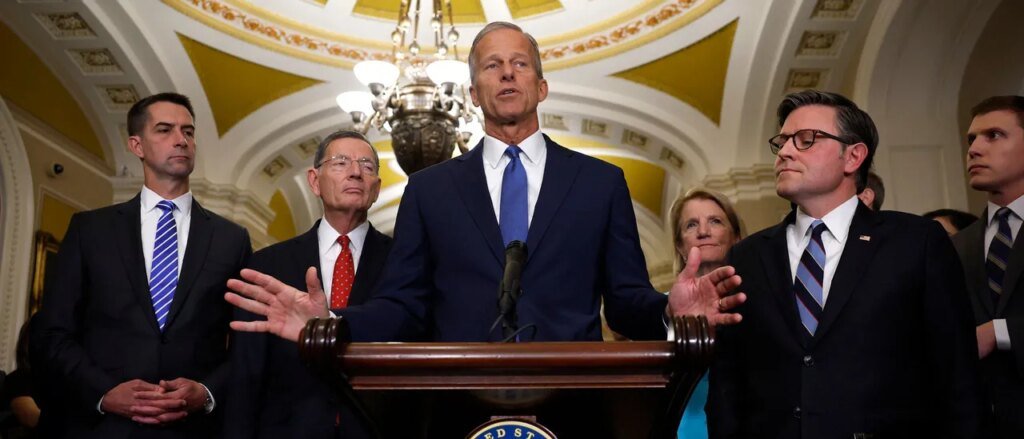Senate Passes Major Defense Policy Bill Amid Government Shutdown
On Thursday, the Senate approved a significant defense policy bill after weeks of stalled discussions, allowing a hefty $879 billion funding package to move forward despite a government shutdown.
The National Defense Authorization Act (NDAA), which funds U.S. military operations and outlines the National Defense Strategy, was passed with a 77-20 vote late at night. In a flurry of legislative activity, seven amendments were adopted while nine others were rejected during the session.
The approval set the stage for the House and Senate Armed Services Committees to reconcile the differences between their versions of the bill. Notably, the House’s version received no support from Democrats when it passed in September.
In a related proposal, Rep. Chris Van Hollen from Maryland introduced a measure requiring that state governors give consent before the National Guard can be deployed for federal missions within their territories. Van Hollen quoted Oklahoma Governor Kevin Stitt, expressing concerns about governors being pitted against each other on this issue. However, this amendment didn’t pass, with a close vote of 47-50.
A different bipartisan amendment, pushed by Senators Tim Kaine and Todd Young, aimed to revoke the long-standing war authorizations for Iraq from 1991 and 2002, reflecting a notable shift in U.S. policy. Young remarked on the Senate floor that it was time to acknowledge Iraq as a partner rather than an adversary, considering the ongoing diplomatic relationships.
An amendment by Senate Minority Leader Chuck Schumer, intended to block President Trump’s acquisition of Qatari jets for presidential travel, was also turned down. Schumer criticized the idea of extravagant spending amidst the financial struggles many Americans face, claiming it was an example of outrageous waste.
The NDAA addresses various other mandates, such as the elimination of DEI policies within the Department of Defense, curbs on gender reassignment surgeries at military bases, and bans on admissions to military academies based on race and gender.
The legislation outlines key foreign policy actions, including increased support for Ukraine, enhanced partnerships in the Middle East, and expanded collaboration with Taiwan. Additionally, it prohibits purchasing Chinese-manufactured materials like solar panels and semiconductors, as well as restricting Chinese vehicles from the Pentagon’s property.
Senator Roger Wicker, the Armed Services Committee chair, advocated for the NDAA in his Senate remarks, emphasizing a bipartisan effort aimed at strengthening national security and enhancing the country’s defense capabilities.







